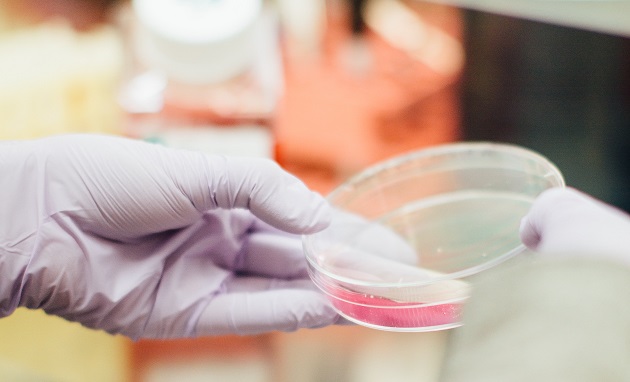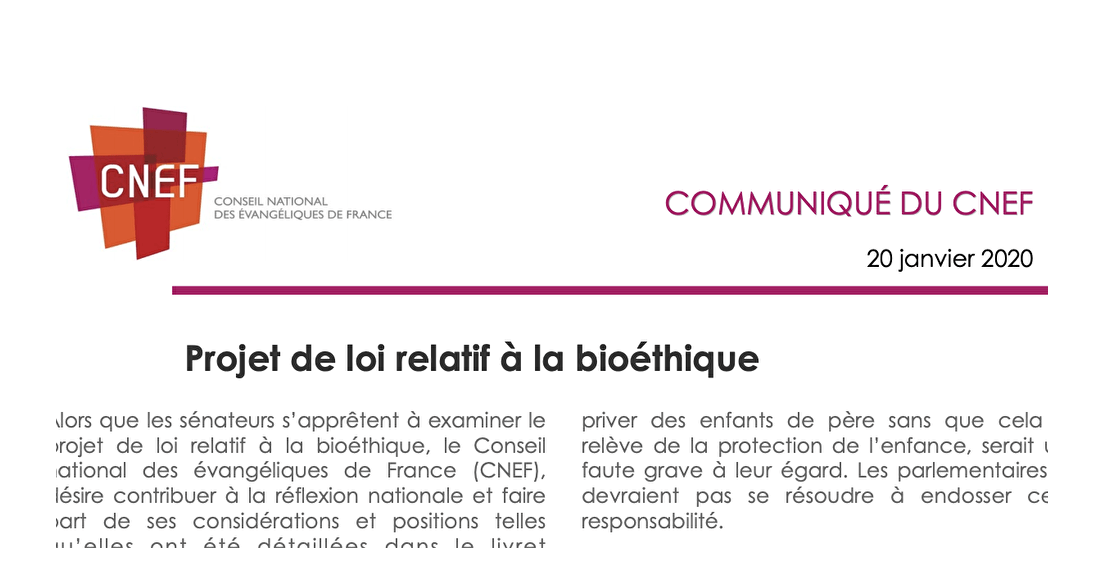French evangelicals say new bioethics law puts protection of the weakest in hands of market and technology
After two years of intense social debate, the draft law is ready to be passed by the Senate. Two evangelical organisations warn against the “temptation of creating and augmented humanity”.
PARIS · 31 JANUARY 2020 · 10:42 CET

The Senate of France starts the discussions to examine a new Bioethics Law, one of the major projects of President Emmanuel Macron, who announced the plans in 2018 and launched a national consultation in which many actors of civil society have had their say.
As the draft law started its final process, evangelical Christians explained their views again, on a norm that will regulate euthanasia, surrogacy and the use of artificial intelligence, among other issues.
The National Council of Evangelicals of France (CNEF, France’s Evangelical Alliance) said it “wanted to contribute to the national reflection”, in the line of the document “Bioethical convictions” which the evangelical body had already published in 2018.
According to CNEF, “the temptation of creating an ‘augmented humanity’ is not new, but this draft law gives a perspective to this temptation that was unknown until now”.

The French Penal Code prohibits any attempt to go against the integrity of human beings, and bans eugenic practices and other actions that “tend to the organisation or selection of people”, the statement underlines.
But “that anthropological protection is at risk”, because the new law brought to the Senate “removes any need for authorisation for research on the embryo”, a provision that should be withdraw, the CNEF says.
Regarding assisted procreation, the evangelical body says the new law opens a scenario in which any “parental project on demand” could be approved, possibly leading to “the worst excesses of a technical market society in which desire would be king and the law would only be the servant”.
Furthermore, “to consider depriving children of fathers without it being a matter of child protection, would be a serious offence against them”.
THE NEED TO PROTECT FREEDOM OF THOUGHT
The CNEF also addresses what the law says in the area of “respect of freedom of thought, of conscience and of religion, to protect the plurality of opinions”.
Not only medical doctors, but also other professions should have the right to conscientious objection, especially those professional areas which have seen a rapid technological evolution that has brought new ethical dilemmas. “The absence of such clauses would lead to a dissuasive effect” that could alienate people with religious or philosophical convictions from certain professional areas of work.
The CNEF concludes its statement by saying: “Considering the risks for human beings and for the generations that will follow us, we understand and share the concern expressed by a very large number of French people and we ask the government, senators and MPs, to be attentive and kindly listen to these voices”.
PROTESTANT HUMAN DIGNITY COMMITTE
In Paris, on 19 January, another evangelical voice in France, the Protestant Evangelical Committee for Human Dignity (CPDH), joined a demonstration against the Bioethics draft law.
In a speech, the CPDH argued that future generations will hold the society and leaders of today accountable for the decisions taken in areas that could “threaten their daily life and survival”.
“The aspiration of evangelical Protestants is the same of their fellow citizens who wish that equality and fraternity remain the cement of our society. A society that is attentive to those who are weakest, to the right of children to know their parents and to be brought up by them, a society that turns towards the respect for life”.
The Bioethics law project as it is presented, “in particular the diversion of medically assisted procreation from its therapeutic purpose and the opening of new perspectives for human selection”, is worrying because it resembles the old desire of creating a ‘superhuman’, a “myth that in the past has only led to disaster”.
“We are here to tell the senators and the government to beware of this!” the CPDH concluded.
Published in: Evangelical Focus - science - French evangelicals say new bioethics law puts protection of the weakest in hands of market and technology
